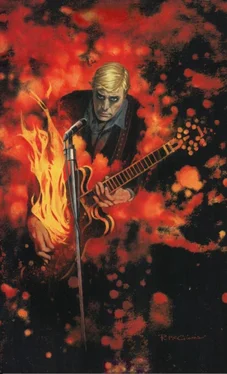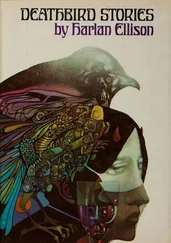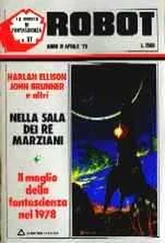Shelly shut up, staring soulfully at the butt end of the cigarette. When they reached the Colonel’s suite, he unlocked the door and preceded Shelly into the room, up to his ankles in the pile rug. They breast-stroked across the room to the bar and Shelly maneuvered behind the counter. “Want a Julep, Colonel?” Freeport shook his head.
“I’ll take a Pimm’s Cup. This dry, cursed weather.”
To Shelly the cliché of a Southern colonel (albeit an expatriated one with a dream of rebuilding the Yankee-burned ancestral plantation) drinking Mint Juleps was almost too cornball for consideration; but the potency of Freeport’s personality simmered in his very hewing to the stereotypical impression of Suth’rin aristocracy. That way, when he pulled off a snakelike Manhattan maneuver, it was unexpected, and usually successful.
But he was right; in Vegas, dry and warm Vegas, the Julep was about as appealing as sulphur water.
Pimm’s Cup, indeed. He mixed it, strong, cool, tall.
Then he mixed a Rob Roy for himself.
The vermouth was distantly introduced to the Scotch, much as a commoner would be introduced to royalty. They nodded at each other, and each went his way.
Shelly moved from behind the bar and settled on the soap-colored sofa. The Colonel remained perched on the bar stool.
“Shelly,” the Colonel said, scrutinizing the drink in his hand.
“I’m ready,” Shelly said.
“We are about to launch our little satellite into his orbit.” He paused dramatically, then added, “Last night I received a call from Hollywood. Charlie. He seems to be interested in Stag for the motion pictures.”
Shelly’s Rob Roy paused on its way to his mouth and he let loose a whoop of delight. “That’s great ! Contracts?”
Freeport held up a staying hand. “Apparently Milt called him from Hollywood, and Charlie flew out there for a conference. They want us out there as soon as we can make it.”
“Well, we’ve only got three more stops on this tour—San Diego, San Francisco and L.A. Why don’t we cancel out the last three and fly right into L.A. tonight?”
The Colonel was shaking his head.
“I don’t think so, Shelly. I don’t think we should jump. There have been other offers, you know.”
Shelly agreed. “Maybe you’re right.”
The Colonel nodded. “After I got the call, I called one of Universal’s press agents, a girl named Billie Sanders. We talked for a while and finally met for a cup of coffee at The Brasserie.”
“How’s her son?” Shelly asked.
“Does she have a son? I don’t know her that well.”
Shelly nodded. “Yeah, a nice kid. His name’s Kenny. I worked with Billie on a promotion for Operation Petticoat while you were in Europe year before last; she’s a good kid.”
The Colonel dismissed the opinion hurriedly. “Well, in any event, I talked to her for a while and tried to ascertain whether there had been any murmurings in the Universal organization. She hadn’t heard anything definite, but her superior, a Herman Kass, had alerted everyone on their field representative staff to be ready for something big.”
Shelly sipped and asked, “So?”
“So,” Freeport said slowly drawing his conclusion, “I believe they’re anxious for our Stag Preston to join the organization, and by canceling, by leaping at them, we may lose a bargaining position. No, Shelly, I firmly believe we should let the tour end when and where we had planned it, and then strike.”
Shelly thought about it for a long moment, then nodded. “I believe, Colonel, sir, that were they to cast for the life of Machiavelli, you would be a definite shoo-in. I bow.” He did so.
They toasted each other silently.
Meanwhile, back at the Sands…
Stag’s apparent good behavior for the preceding month and three-quarters was not entirely due to Shelly’s watchdog attentions. It was due to the one-night stand nature of the tour. It was hard to screw a moving target. Stag was here and gone in a flash, just like The Flash, except without the winged doughboy helmet. Here, then quickly gone: he couldn’t make the contacts and preliminary makeout advances. Not only that, but with the performances, publicity appearances on radio, tv, in department stores, high schools, luncheons—by the end of the eighteen hour day, the boy was more than glad to drop onto the rack and stack up Zs.
Yet Stag Preston had tasted of the fruit of success, had, in fact, bitten deeply of that passionfruit, and like the hophead, wanted his regular supply. Being unable to get at the hordes of luscious young admirers who leered, lusted and drooled over the footlights, Stag’s attentions—as well as his thoughts—turned inward.
There were now ten other acts with the show. Most of them were one-hit record attractions whose name value was (as Shelly phrased it) from Nilsville, but who beefed up the poster listings.
One of the acts was Trudy Quillan, a pneumatic sixteen-year-old who had cut a disc on “Mood for Sorrow” and sold a quarter of a million copies of same. She had joined the tour in St. Louis and had been fourth on the bill. She was a strikingly attractive girl with an ample bust, good legs, dark black hair and high cheekbones. Her life in Florissant, Missouri, had been devoid of charm or significance until she had begun singing around town with a rock’n’roll trio. Friends had told her, “Amy,” (for her name was not really Trudy Quillan), “why don’t you go on into St. Looie and make one of them demonstration records. You got a won derful voice, child.”
So Amy/Trudy had gone into St. Louis and she had, indeed, cut a demo. It was heard by a scout for a local waxworks who tentatively pressed it. The song was a currently popular R&B dirge and she sang it badly. But the wife of the man who had tentatively pressed it (singularly lacking in taste, but not in enthusiasm) enjoyed it and demanded—suggested?—enjoined?—that Trudy be given something else to sing.
The scout had found a down-in-the-socks composer of rhythm and blues opera and had commissioned him, with the promise of a bottle of Jack Daniels, to do a song for the young girl. That had been “Mood for Sorrow” and it was the only record on the Firefly label that ever got off the ground … even as high as a firefly.
Trudy had, in a moderate way, arrived. Arrived sufficiently, at any rate, to be booked onto Stag’s tour. And booked onto Stag’s tour inevitably entailed being booked onto Stag’s roving eye.
Trudy was an easy place for any eye to settle. Stag’s had settled on her the day she joined the troupe. Unlike most girls on road tours who invariably travel with a “stage mother,” Trudy was an orphan who had lived with an aunt and uncle in Florissant, and so came to the show unchaperoned.
Which was very much like staking out a young lamb for sacrifice.
Back in Florissant, there had been few idols with whom Trudy could identify. There had been Elizabeth Taylor, and there had been Leslie Caron (because Trudy’s features were out of the same general pixie mold), and on the other side of the sexes there had been Nick Adams and Rock Hudson and Elvis and Fabian and, of course, Stag Preston.
What would be your reaction, coming face to face with:
(If you are a dancer) Eglevsky …
(If you are a writer) Shakespeare …
(If you are a lover) (male) Cleopatra …
(female) Don Juan …
(If you are a philosopher) Solomon …
(If you are a physician) Hippocrates …
(If you are religious) God … ?
Then you have a close approximation of how Trudy Quillan felt when Stag Preston made his first tentative gestures in her direction. You have an idea, also, of how Tamerlane took over the civilized world. With a gung and a ho!
Читать дальше












